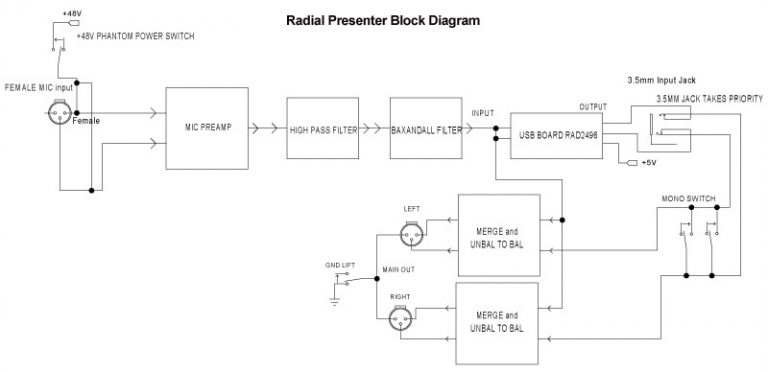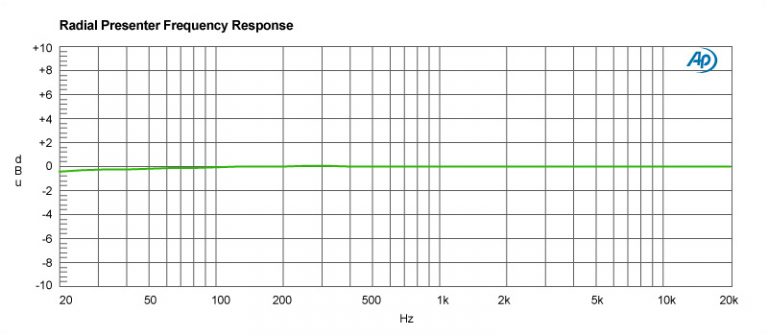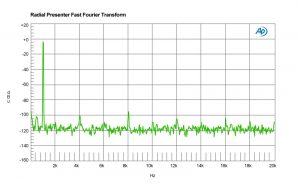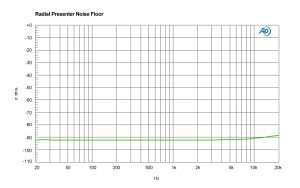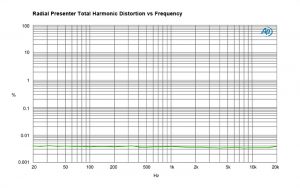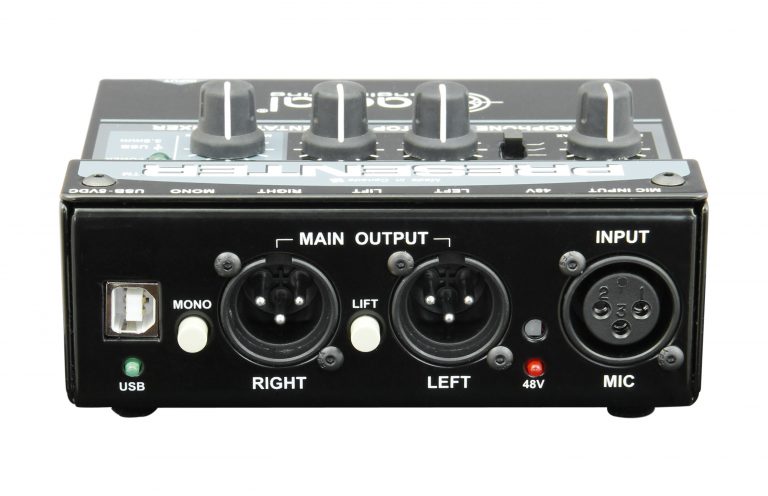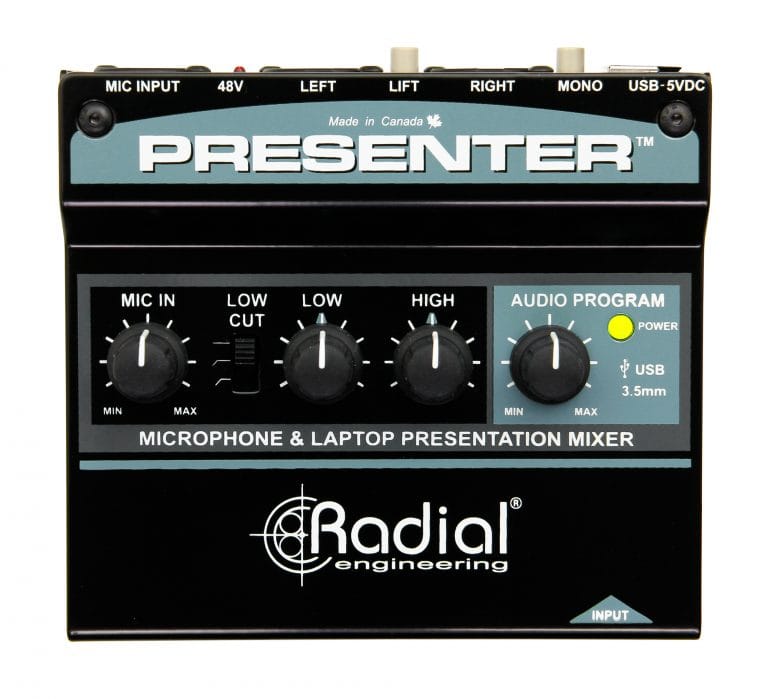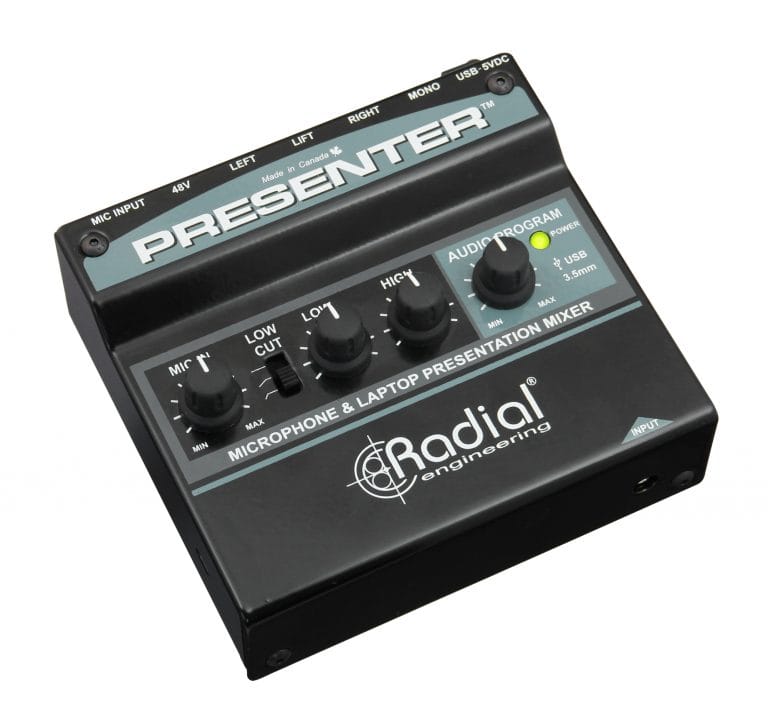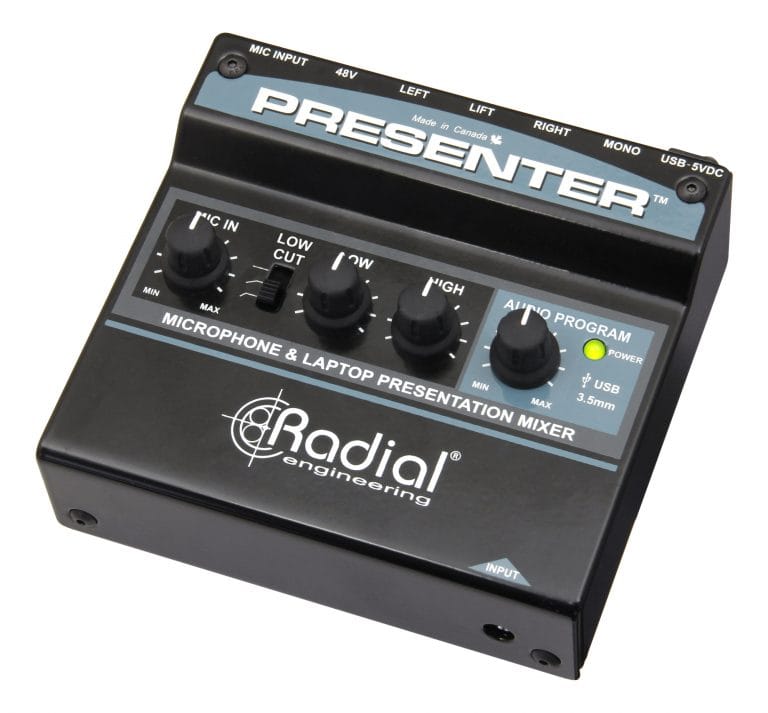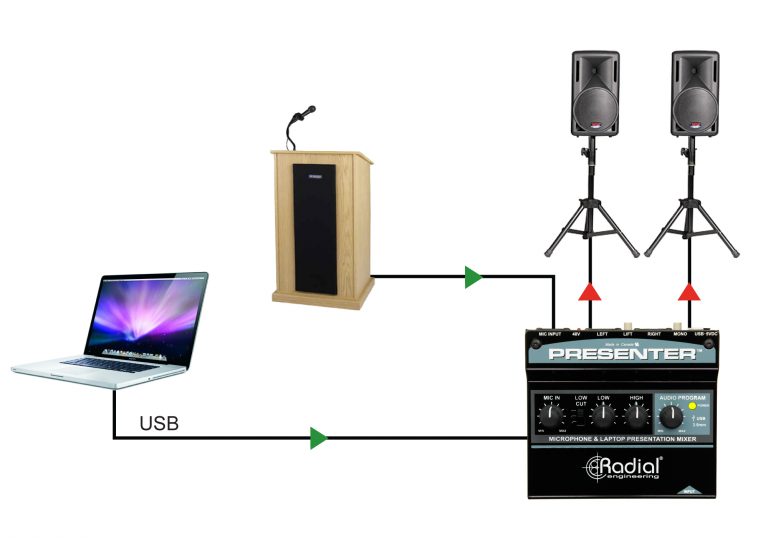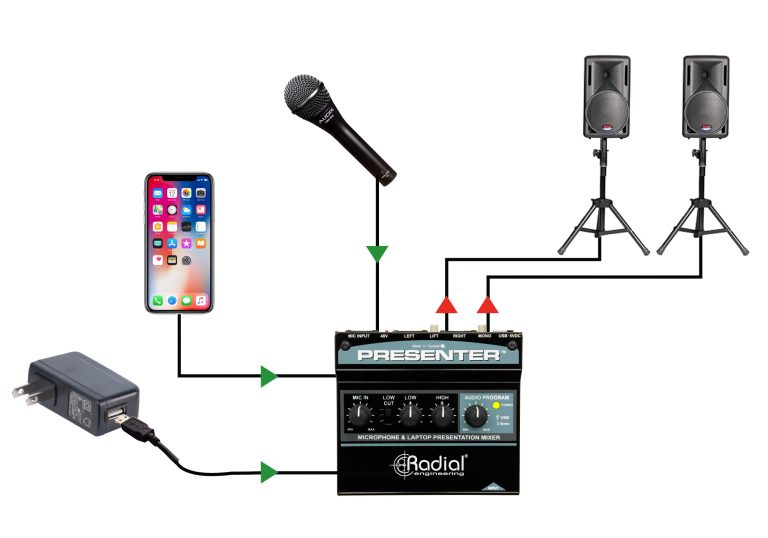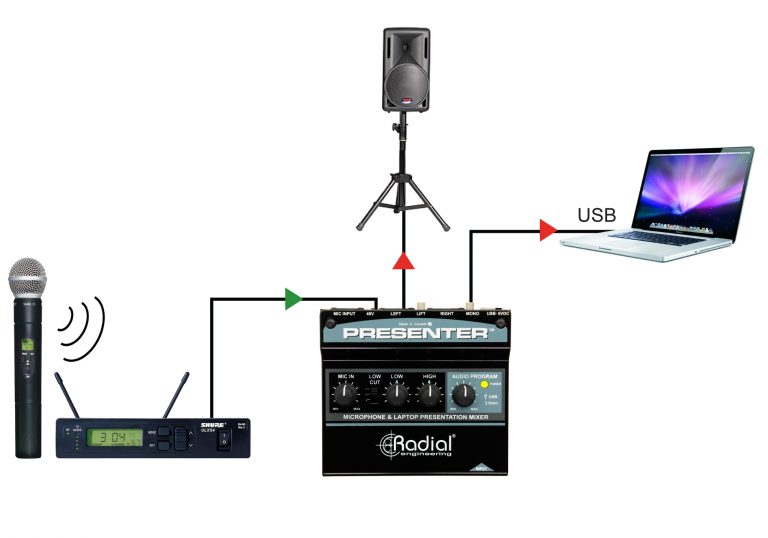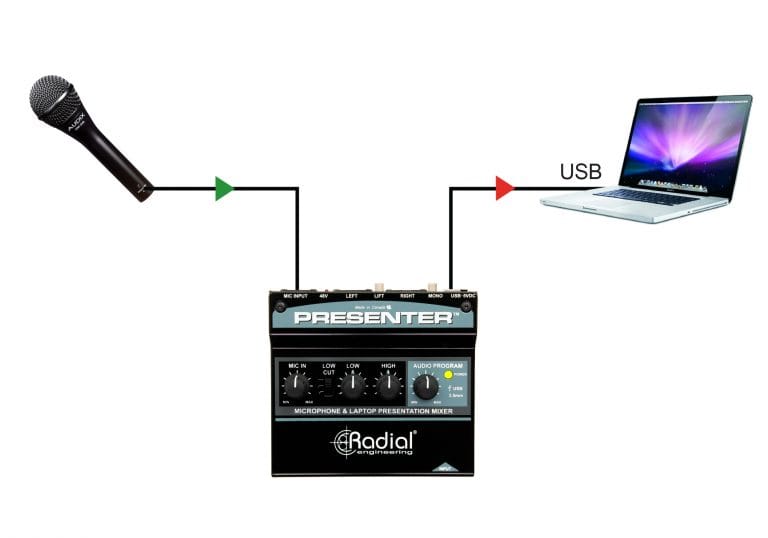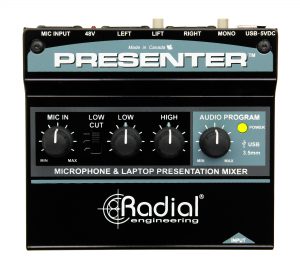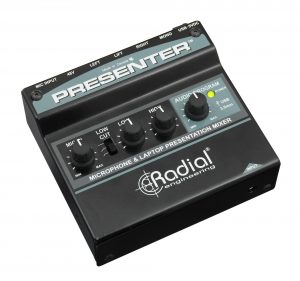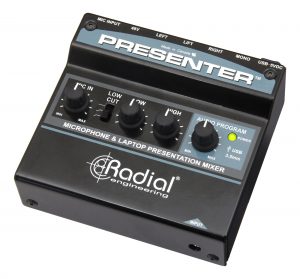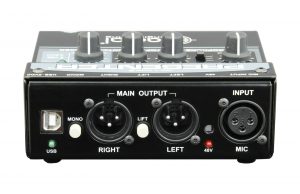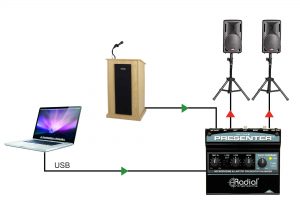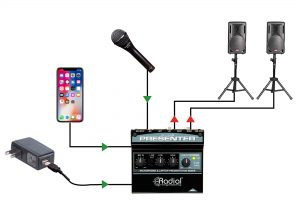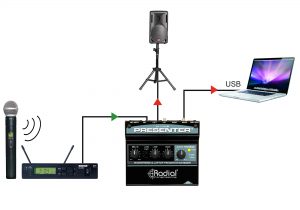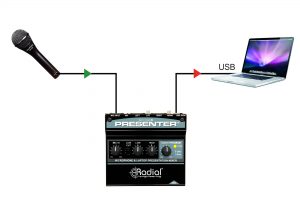Close
Presenter Specifications
The Presenter provides a simple but robust mixer that makes setup for any event or presentation easy. A microphone preamp allows a dynamic or condenser mic to be connected and quickly feed a pair of powered speakers via the XLR outputs. Tone controls and a low-cut filter help optimize the sound of the microphone, while additional inputs are available to use a playback source alongside the mic, such as a smartphone or tablet. These can be connected using a 3.5mm input, which includes a level control. A USB input provides power for the Presenter and also allows for playback of digital audio files from a laptop computer.
Specifications
Block Diagram
Graphs
| Specifications | ||
|---|---|---|
| Audio circuit type: | Active Preamplifier Circuit with digital to analog input conversion | |
| Number of channels: | 2 | |
| Frequency response: | 20Hz to 20kHz (-0.4dB/0dB) | |
| Dynamic range: | +91dBu | |
| Gain: | +52dBu | |
| Total harmonic distortion: | 0.004% @20Hz, 0.004% @1kHz, 0.004% @10kHz | |
| Intermodulation Distortion: | 0.003% @0dBu, 0.01% @ -10dBu, 0.03% @-20dBu | |
| Phase Deviation: | -28° @ 20Hz, -1° @ 1kHz, +2° @ 10kHz | |
| Input Impedance: | 10kΩ | |
| Output Impedance: | 2.74kΩ | |
| Noise Floor: | -84dBu | |
| Maximum Input: | +7dBu | |
| Features | ||
| Input Connectors: | XLR, 3.5mm, USB 2.0 type B | |
| Output Connectors: | XLR | |
| General | ||
| Construction: | 14-gauge steel chassis | |
| Power: | 5V USB | |
| Conditions: | For use in dry locations only between 5°C and 40°C | |
| Warranty: | Radial 3-year, transferable | |



